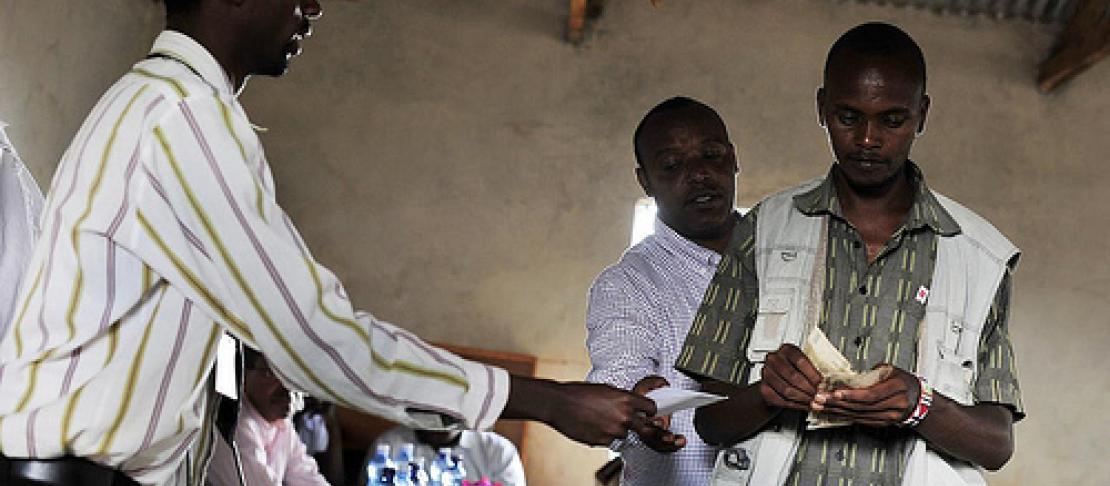Making index-based insurance work for the rural poor: Identifying the knowledge gaps

By Ruth Vargas Hill
Back in October last year, the CGIAR Research Program on Climate Change, Agriculture and Food Security, the Index Insurance Innovation Initiative (I4), and the International Food Policy Research Institute (IFPRI) hosted a joint workshop. The aim of the event was to identify and address issues surrounding index-based insurance for smallholder farmers and the rural poor. Even though there is large potential for using index-based insurance to improve lives and livelihoods of smallholders, there is still an issue of cost. The premium cost might in fact prevent people from purchasing insurance which could ensure social protection.
There is still a lot to learn about index-based insurance
The prospect of rolling out traditional cover insurance programmes in developing countries is seen as unsustainable. This is because of risks with moral hazard, adverse selection, and the high costs of loss assessment for farmers who operate on a small scale. Based on this, the workshop participants identified key areas for further research and learning aiming at increasing the benefits of index-based insurance to small-holder farmers and the rural poor in the developing world.
The workshop also identified five important areas of research to be conducted in the future that would address the current gaps in knowledge, methodology, tools and more in the field of index-based insurance:
- Achieving optimal risk management;
- Improving index insurance design;
- Understanding behavioral and economic constraints to individual uptake for index insurance;
- Scaling up and sustaining individual index insurance;
- Learning how to insure services and institutions.
The workshop highlighted the need to take advantage of existing synergies between insurance packages and other financial interventions, such as credits, savings, and social safety nets, as well as non-financial interventions, such as crop diversification and improved irrigation. The participants also discussed the need to optimize the sequencing of insurance interventions, particularly because as smallholders begin to climb out of poverty, their need for insurance interventions may be reduced.
Why smallholder farmers could avert from insurance
Understanding and minimizing smallholders’ risk was also seen as crucial in designing and implementing effective programs. The workshop highlighted the need to think creatively about different ways to manage and minimize this risk so as to make insurance more accessible to poor smallholders. Apart from risk being a factor that might hinder people from partaking in insurance programs, other factors that might hinder the implementation of a index-based insurance program were discussed. These factors were identified as low demand and a lack of understanding and trust on the part of smallholder farmers. Understanding these and other factors will allow researchers to design more effective insurance interventions in the future.
The full workshop report "Index Insurance for Managing Climate-Related Agricultural Risk: Toward a Strategic Research Agenda" is available for download (PDF).
This story was written by Ruth Vargas Hill, a research fellow in the Markets Trade and Institutions division of the the International Food Policy Research Institute (IFPRI). Read more about our work on Adaptation through Managing Climate Risk.


